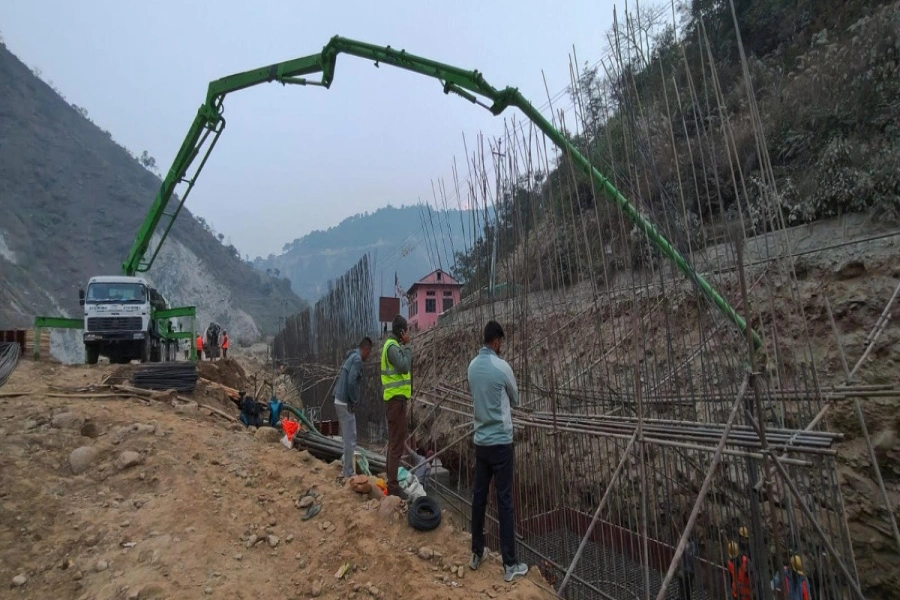The recent increase in foreign tourist arrivals to Nepal is a promising sign for the country's tourism industry, which has been severely impacted by the Covid-19 pandemic. The arrival of over 73,000 tourists in February 2023, compared to just over 9,000 in the same month the previous year, shows that the country’s ailing tourism industry is gradually on the path of recovery. While there is still a long way to go before the industry fully rebounds, the data released by Nepal Tourism Board (NTB) suggests that Nepal is well on the path to regaining its position as one of the popular tourist destinations. In Nepal, the month of February is traditionally the start of the peak tourist season as this marks the end of the winter season and the start of the spring season. The spring season is considered the best time for tourists to visit Nepal. The fact that the number of visitors during the month was much higher than in previous years bodes well for the rest of the year. It is also encouraging to see that visitors are coming from a range of countries, including India, the United States, Australia, Thailand, the United Kingdom and South Korea. This diversity in the source countries of tourists is a positive thing as this helps to ensure the resilience of the tourism industry against any similar shocks in the future.
It is particularly noteworthy that the number of Chinese tourists visiting Nepal has started to increase again despite the fact that the Chinese government has not included Nepal as a destination for Chinese tourists this year. Reports say that over 155 million Chinese people traveled abroad in the year 2019—a year before the outbreak of the COVID-19 pandemic — and spent over $250 billion. If we are able to attract a small percentage of those outbound tourists from China, our tourism industry will take no time to revive and grow further. Needless to say, China has been one of Nepal's key tourism markets in recent years, and it is important for the industry's recovery that this trend continues. The availability of direct flights between Kathmandu and various cities in China has undoubtedly contributed to facilitate individual travel, and we can expect that group travel from the northern neighbor will resume soon. For this to happen anytime soon, the government should take diplomatic initiatives to urge the Chinese side to include Nepal as one of the tourist destinations for its citizens. As a newspaper, we urge all stakeholders including NTB and tourism entrepreneurs to work toward ensuring that Nepal remains an attractive destination for Chinese tourists, including by promoting the country's rich cultural and natural attractions.
Nepse stages massive recovery to close session in green

Despite the growth seen in the number of arrivals of tourists, it is important to acknowledge the challenges that remain for Nepal's tourism industry. The COVID-19 pandemic is still ongoing, and there is always the risk of new outbreaks and restrictions. The country’s poor record of aviation safety has also been another important concern of potential tourists. Additionally, there are several other factors that can impact tourism, such as natural disasters, political instability, and economic downturns. To ensure the long-term sustainability of the industry, Nepal must work to address these challenges and build resilience against future shocks. One way to do this is to diversify Nepal's tourism offerings. While the country is perhaps best known for its stunning mountain scenery, there are many other attractions that could help to attract more visitors. These include Nepal's rich cultural heritage, its national parks and wildlife reserves, its adventure sports, and its spiritual and wellness tourism offerings. By promoting these lesser-known attractions, Nepal can broaden its appeal and attract a wider range of tourists. There is also a huge prospect of promoting religious tourism as Nepal is not only an important religious destination for Hindu pilgrims, but also for millions of Buddhist pilgrims living across the continents. The construction of the Gautam Buddha International Airport in Bhairahawa which is next to Lumbini, the birthplace of Lord Buddha, is helpful to realize this prospect.
While we work to realize the immense potential of tourism, our key priority should be to ensure that visitors have a safe and enjoyable experience while in Nepal. This means investing in infrastructure such as airports, roads, and hotels, as well as in training for tourism professionals. This could also help promote quality tourism. The recent increase in foreign tourist arrivals to Nepal is a positive sign for the country's tourism industry. It is also a testament to the resilience of Nepal's tourism professionals and the appeal of the country's natural and cultural attractions. While there are still challenges to be faced, Nepal has shown that it has the potential to bounce back from adversity and regain its position as a leading destination for international visitors. The government, the tourism industry, and other stakeholders must work together to support this recovery and ensure a sustainable future for Nepal's tourism sector.







































